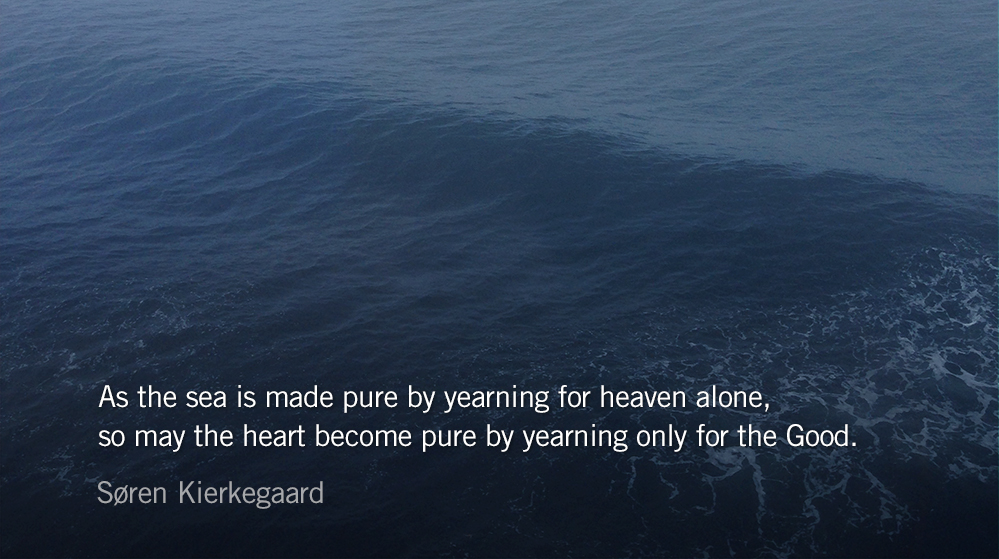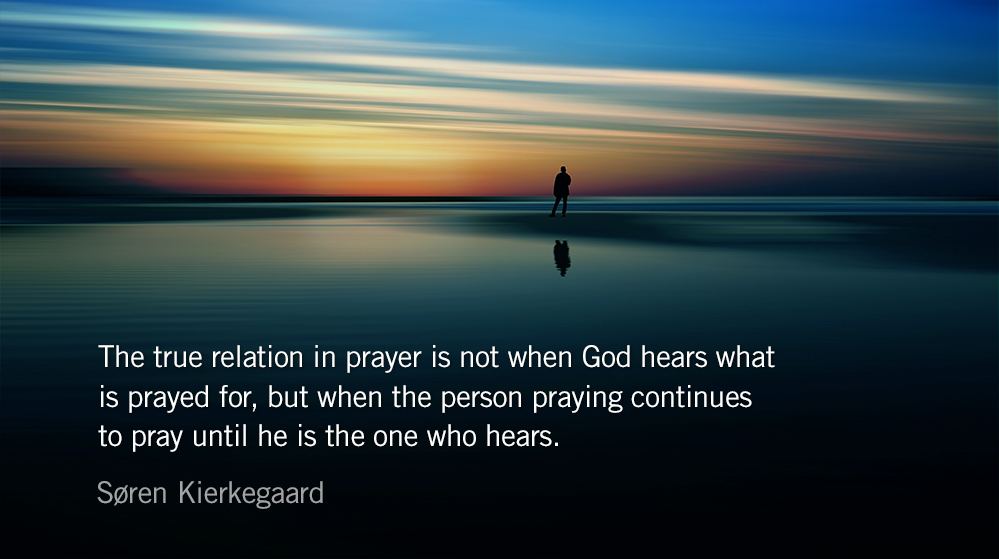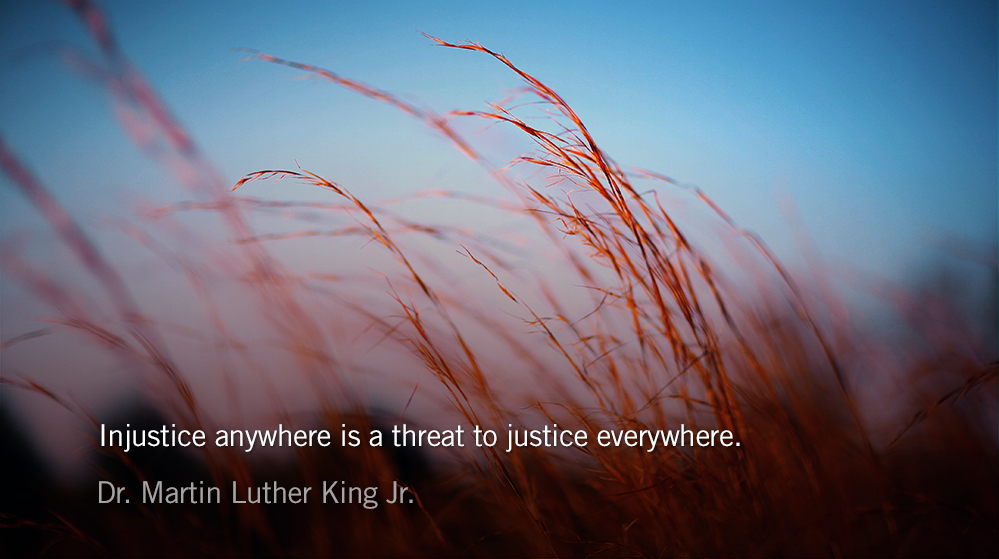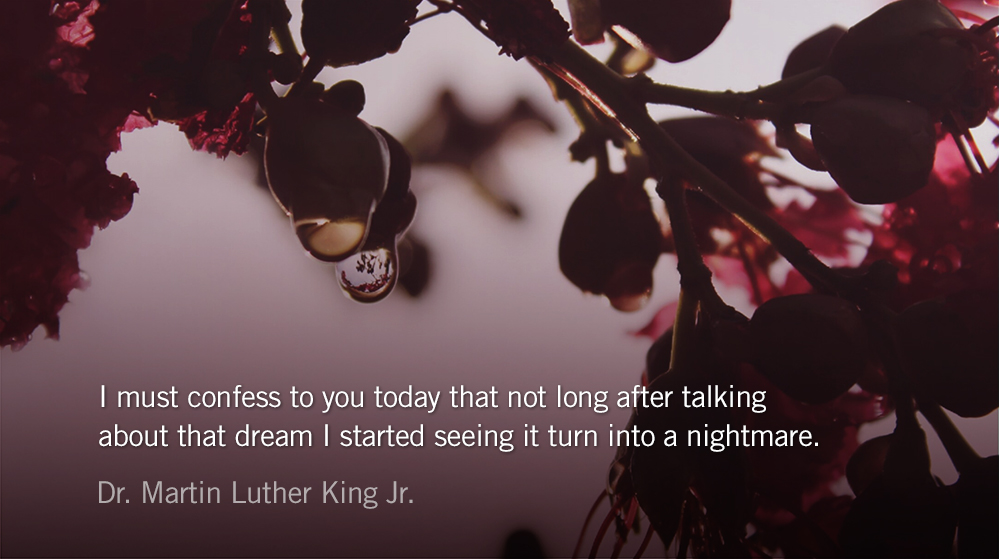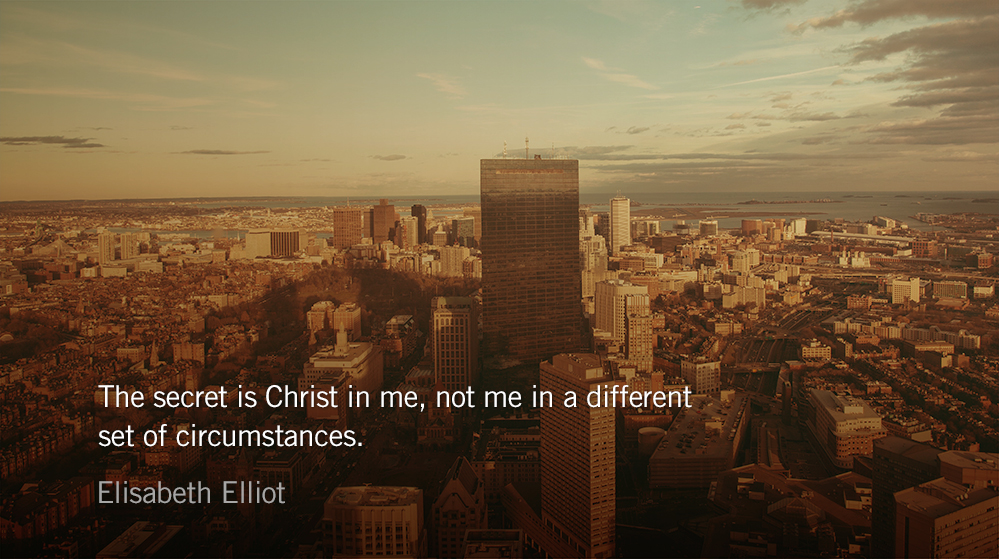Abraham is an eternal pattern of faith. To be a stranger and in exile is the peculiar suffering of faith.
― Søren Kierkegaard
Scripture: Genesis 20.9
Then Abimelech called Abraham and said to him, “What have you done to us? And how have I sinned against you, that you have brought on me and my kingdom a great sin? You have done to me things that ought not to be done.”
Reflection: Purity of Heart
By Søren Kierkegaard (1813-1855)
Purity of heart: it is a figure of speech that compares the heart to the sea, and why just to this? Simply for the reason that the depth of the sea determines its purity, and its purity determines its transparency.
Since the sea is pure only when it is deep, and is transparent only when it is pure, as soon as it is impure it is no longer deep but only surface water, and as soon as it is only surface water it is not transparent.
When, on the contrary, it is deeply and transparently pure, then it is all of one consistency, no matter how long one looks at it. Then its purity is this constancy in depth and transparency.
On this account we compare the heart with the sea, because the purity of the sea lies in its constancy of depth and transparency. No storm may perturb it. No sudden gust of wind may stir its surface, no drowsy fog may sprawl out over it. No doubtful movement may stir within it; no swift-moving cloud may darken it. Rather it must lie calm, transparent to its depths.
If you should see it so, and contemplate the purity of the sea, you would be drawn upwards. As the sea, when it lies calm and deeply transparent, yearns for heaven, so may the pure heart, when it is calm and deeply transparent, yearn for the Good.
As the sea is made pure by yearning for heaven alone, so may the heart become pure by yearning only for the Good. As the sea mirrors the elevation of heaven in its pure depths, so may the heart when it is calm and deeply transparent mirror the divine elevation of the Good in its pure depths.
The Concluding Prayer of the Church
Lord God, almighty and everlasting Father, you have brought me in safety to this new day: Preserve me with your mighty power, that I may not fall into sin, nor be overcome by adversity; and in all I do direct me to the fulfilling of your purpose; through Jesus Christ my Lord. Amen.
– From The Divine Hours: Prayers for Autumn and Wintertime by Phylis Tickle
Full prayer available online and in print.
Today’s Reading
Genesis 20 (Listen – 2:39)
Matthew 19 (Listen – 4:04)


